‘Power of Pattern: Central Asian Ikats from the David and Elizabeth Reisbord Collection’, LACMA, Los Angeles
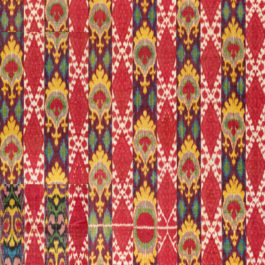
Power of Pattern
15 images
Highlights from ‘Power of Pattern: Central Asian Ikats from the David and Elizabeth Reisbord Collection’, on show at The Los Angeles County Museum of Art (LACMA).
- Woman’s Ensemble, Central Asia, late 19th–early 20th century, Los Angeles County Museum of Art, gift of David and Elizabeth Reisbord, photo © Museum Associates/LACMA
- Robe (Chapan), Central Asia, late 19th century, Los Angeles County Museum of Art, gift of David and Elizabeth Reisbord, photo © Museum Associates/LACMA
- Man’s Ensemble, Central Asia, second half of the 19th century, Los Angeles County Museum of Art, promised gift of David and Elizabeth Reisbord, photo © Museum Associates/LACMA
- Robe (Chapan), Central Asia, third quarter of the 19th century, Los Angeles County Museum of Art, promised gift of David and Elizabeth Reisbord, photo © Museum Associates/LACMA
- Ikat (detail), Central Asia, late 19th–early 20th century, Los Angeles County Museum of Art, gift of David and Elizabeth Reisbord, photo © Museum Associates/LACMA
- Ikat, Central Asia, late 19th–early 20th century, Los Angeles County Museum of Art, gift of David and Elizabeth Reisbord, photo © Museum Associates/LACMA
- Ikat, Central Asia, late 19th–early 20th century, Los Angeles County Museum of Art, gift of David and Elizabeth Reisbord, photo © Museum Associates/LACMA
- Ikat, Central Asia, late 19th–early 20th century, Los Angeles County Museum of Art, gift of David and Elizabeth Reisbord, photo © Museum Associates/LACMA
- Ikat, Central Asia, late 19th–early 20th century, Los Angeles County Museum of Art, gift of David and Elizabeth Reisbord, photo © Museum Associates/LACMA
- Ikat (detail), Central Asia, late 19th–early 20th century, Los Angeles County Museum of Art, gift of David and Elizabeth Reisbord, photo © Museum Associates/LACMA
- Ikat, Central Asia, late 19th–early 20th century, Los Angeles County Museum of Art, gift of David and Elizabeth Reisbord, photo © Museum Associates/LACMA
- Ikat, Central Asia, late 19th–early 20th century, Los Angeles County Museum of Art, gift of David and Elizabeth Reisbord, photo © Museum Associates/LACMA
- Ikat, Central Asia, late 19th–early 20th century, Los Angeles County Museum of Art, gift of David and Elizabeth Reisbord, photo © Museum Associates/LACMA
- Ikat, Central Asia, late 19th–early 20th century, Los Angeles County Museum of Art, gift of David and Elizabeth Reisbord, photo © Museum Associates/LACMA
- Ikat, Central Asia, late 19th–early 20th century, Los Angeles County Museum of Art, gift of David and Elizabeth Reisbord, photo © Museum Associates/LACMA
Over sixty Central Asian ikat robes and wall hangings will be exhibited at The Los Angeles County Museum of Art (LACMA) in ‘Power of Pattern: Central Asian Ikats from the David and Elizabeth Reisbord Collection’, opening 3 February through to 28 July 2019. Curated by Clarissa M. Esguerra, Associate Curator of Costume and Textiles, the textiles on show will be organised by motif, and the exhibition examines how the region’s designers, dyers and weavers used improvisation and abstraction to create textiles unique to Central Asia.
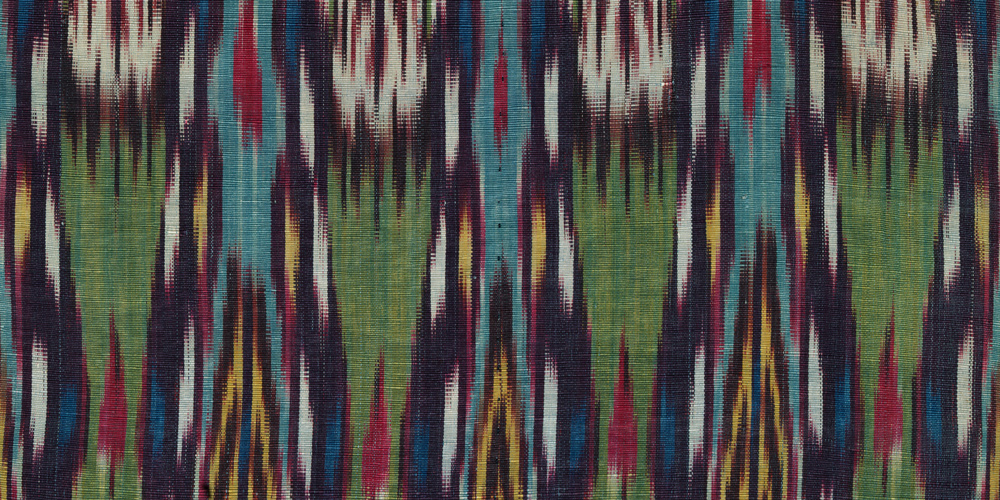
Ikat (detail 1), Central Asia, late 19th–early 20th century, Los Angeles County Museum of Art, gift of David and Elizabeth Reisbord, photo © Museum Associates/LACMA
Influenced by the various cultures along the historic Silk Road, the Central Asian ikat technique uses silk threads that are bound and resist-dyed with a design, before being woven into cloth. The resulting vivid patterns have blurred, cloud-like juxtapositions of colour, known locally as abrbandi (“cloud binding”). Employing a creative use of scale, proportion, and orientation, with hues that are compelling in their purposeful contrast, these luxury fabrics functioned as beacons of kaleidoscopic colour that reflected the wealth and sophistication of their patrons. Whether worn on the body or used to decorate the home, these textiles resonated against the Central Asian landscape. Though ikat is an ancient textile tradition, during the 19th and early 20th centuries there was an ikat renaissance in Central Asia, as artisans from oasis towns experimented with motifs traditionally found on decorative objects produced locally.
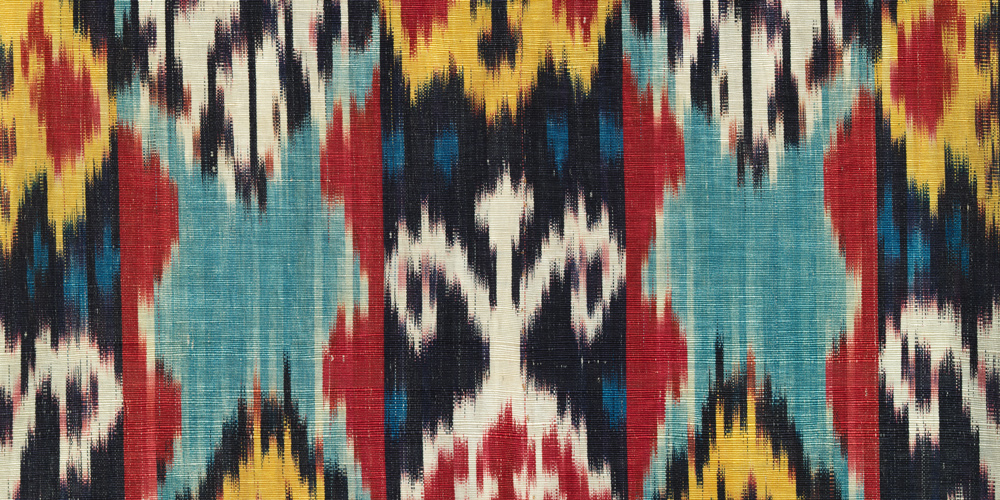
Ikat (detail 2), Central Asia, late 19th–early 20th century, Los Angeles County Museum of Art, gift of David and Elizabeth Reisbord, photo © Museum Associates/LACMA
Surrounded by present-day Iran, Afghanistan, India, China, Mongolia, and Russia, Central Asia generally refers to the countries of Kazakhstan, Kyrgyzstan, Tajikistan, Turkmenistan, and Uzbekistan. This landlocked region was, for thousands of years, the centre of active trade and conquest which carried the various design elements adapted in the area far and wide.


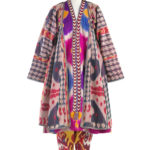
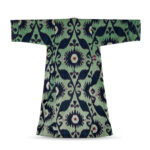
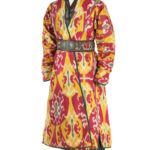
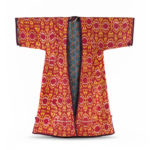
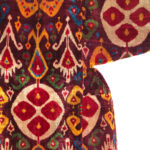
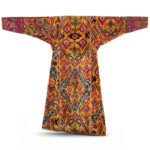
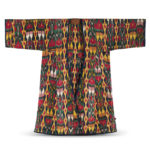
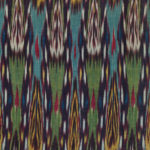
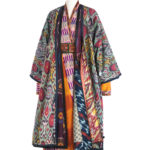
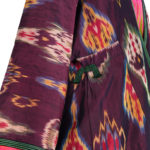
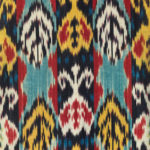
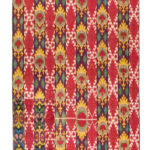
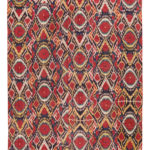
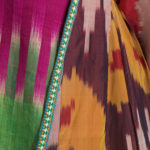
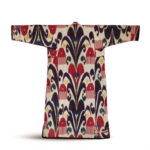
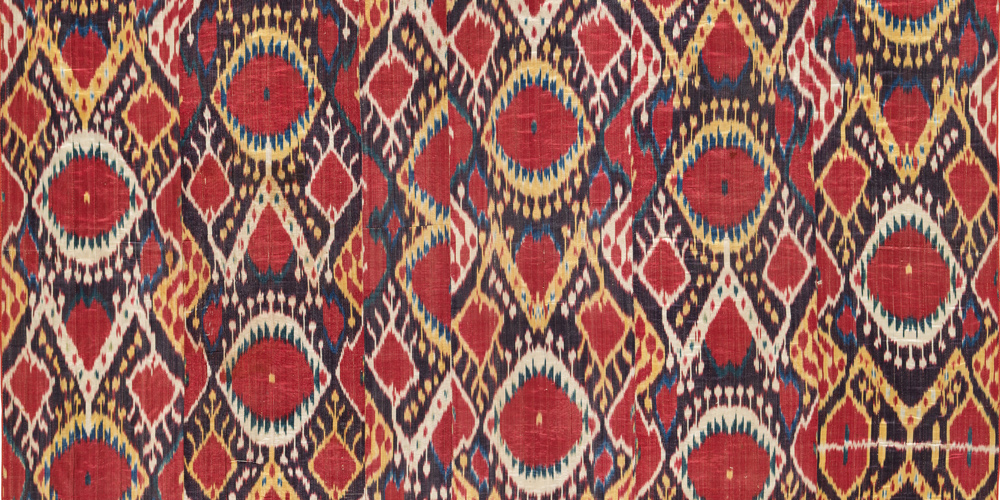















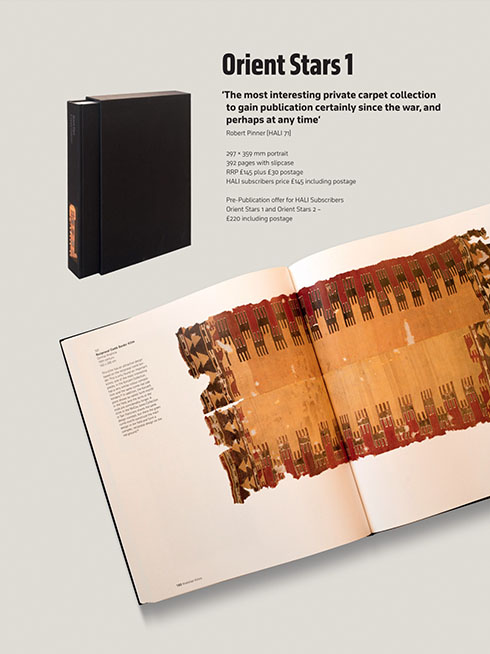
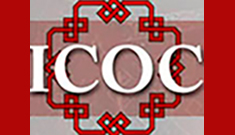
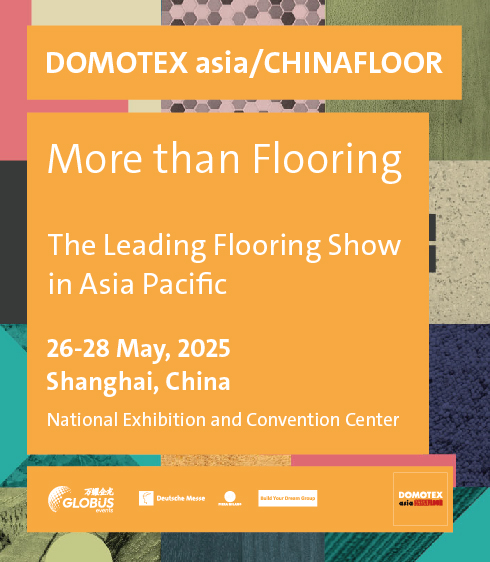
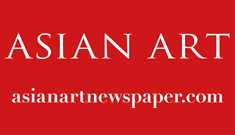
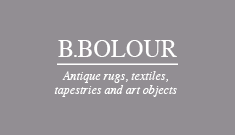
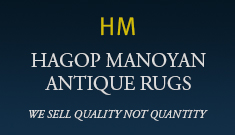
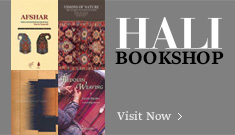
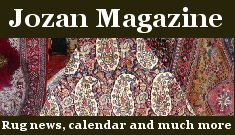


Comments [0] Sign in to comment